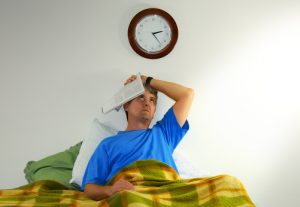
The brain is often blamed for sleeplessness because people who suffer from insomnia are typically overthinkers. It seems that when the body is ready to power down, the brain goes into overdrive with thoughts that keep you awake. But new research suggests that the brain isn’t the culprit of your sleepless nights — your sleep problems may lie in your muscles.
Muscles lead to poor sleep, not the brain
Researchers found that a protein in muscles could help you get a good night’s sleep. This goes against the common notion that the brain is responsible for sleep. The protein is known as BMAL1, and researchers found that mice with higher levels of it recovered from sleep deprivation quicker than those with lower levels.
When BMAL1 was removed from the muscles, sleep became disrupted and the ability to recover from sleep deprivation was harder. The researchers suggest that findings may open a new pathway of treatment for individuals who suffer from sleep disorders.
Researcher Dr. Joseph S. Takahashi explained, “This finding is completely unexpected and changes the ways we think sleep is controlled.”
Previous research into the world of sleep found that our bodies have a “master clock” that controls our circadian rhythm. This master clock is comprised of nerve cells in the brain. The latest findings suggest that BMAL1 is a circadian clock protein that helps to regulate the length and manner of sleep.
Furthermore, when the researchers removed BMAL1, there was a stronger desire to sleep and the mice’s sleep was deeper too.
Dr. Takahasi added, “These studies show that factors in muscles can signal to the brain to influence sleep. If similar pathways exist in people, this would provide new drug targets for the treatment of sleep disorders.”
For now, additional research needs to be conducted to see if the results seen in mice translate to humans.
In the meantime, other tactics can be used to obtain a good night’s sleep. This involves creating a nighttime routine that promotes sleep, avoiding the use of technology prior to bed, avoiding caffeine and other stimulants prior to bed, avoiding beverages prior to bed, not exercising too close to bedtime, ensuring your bedroom is conducive of sleep, and checking yourself for any medical conditions that can contribute to poor sleep.
Related: Certain sleep disorders are caused by muscle protein